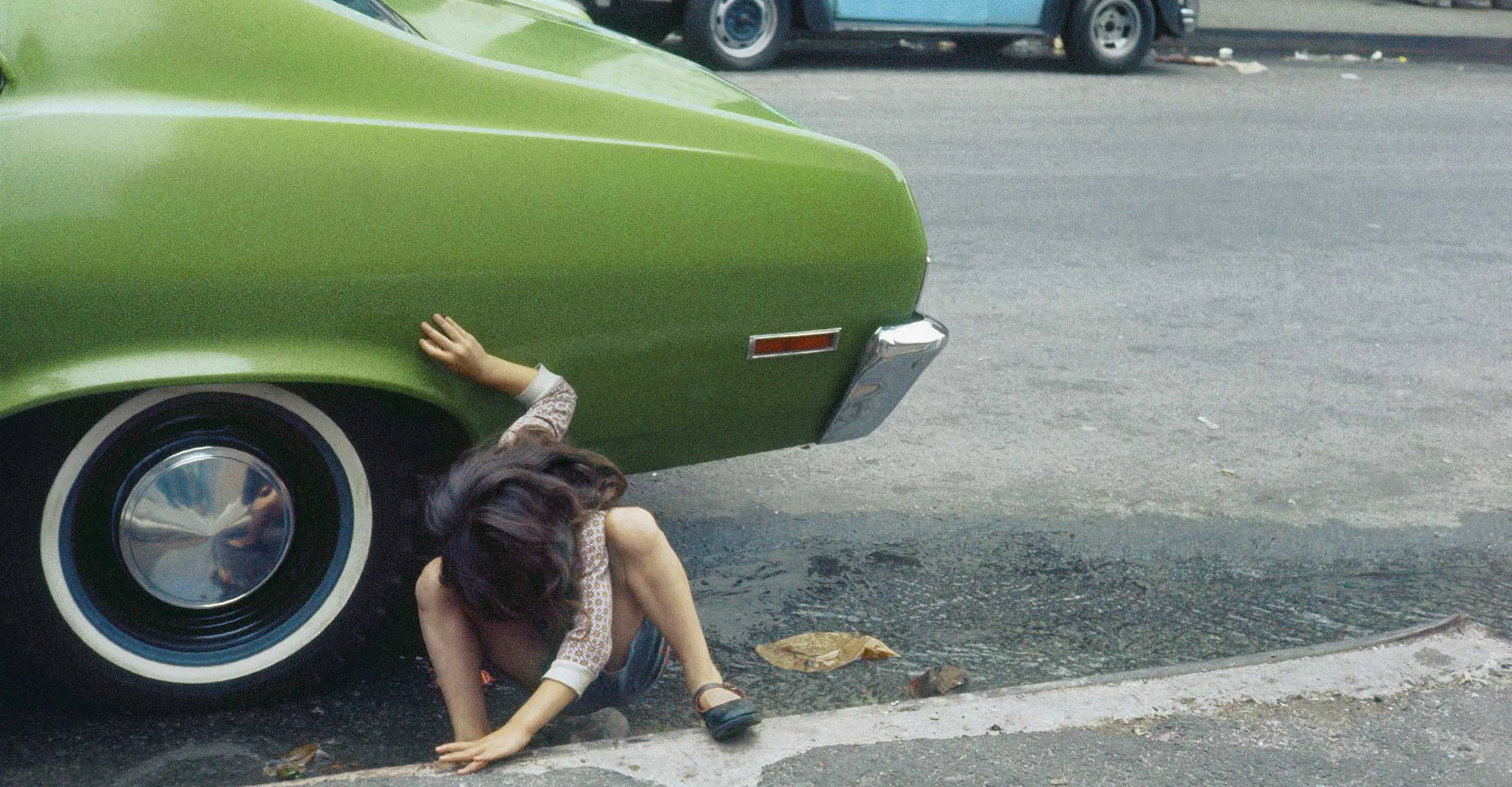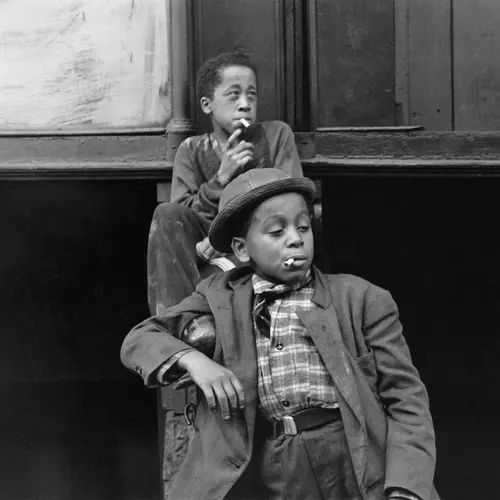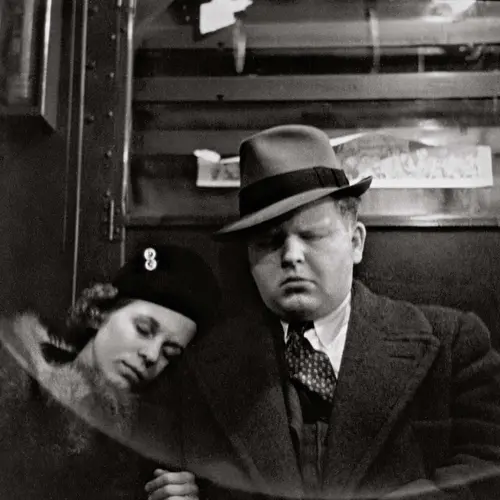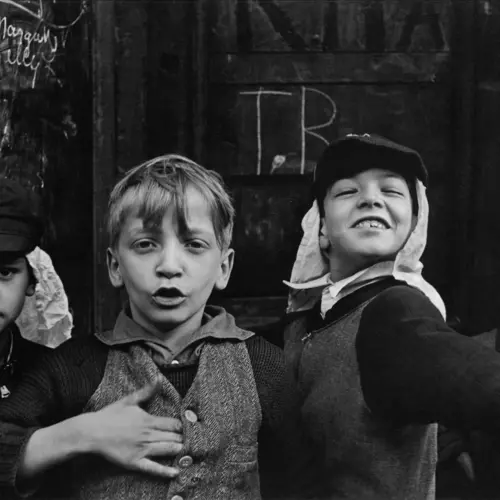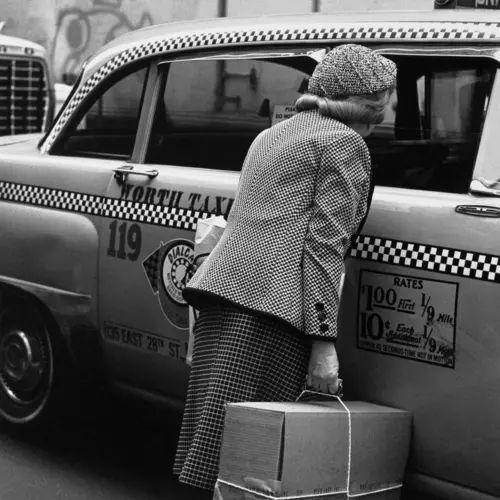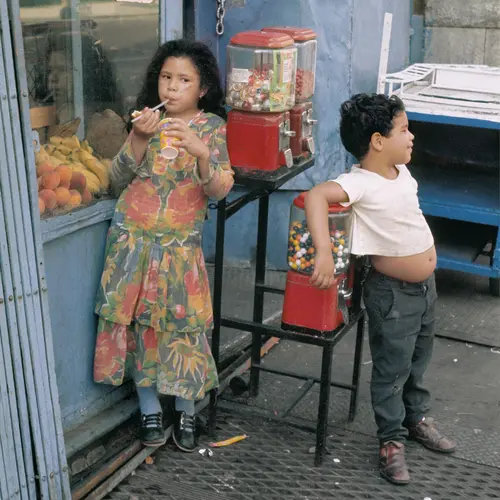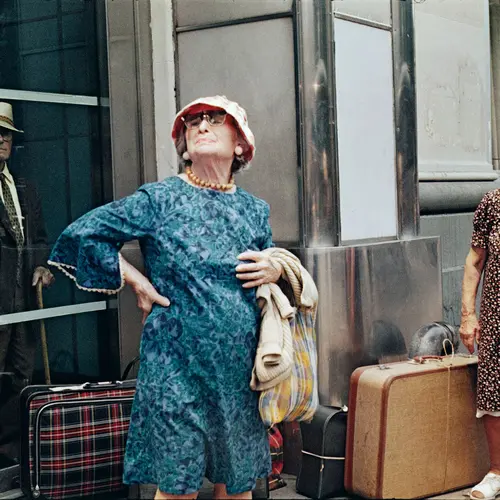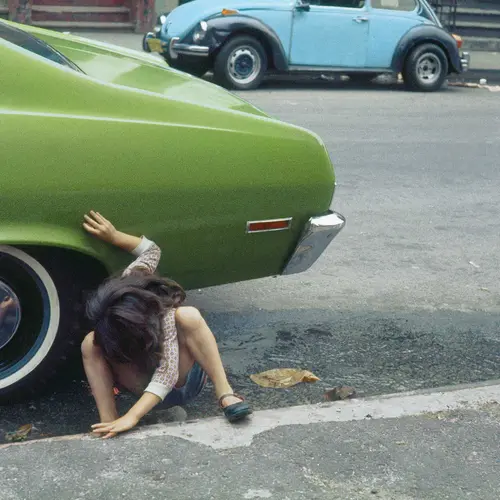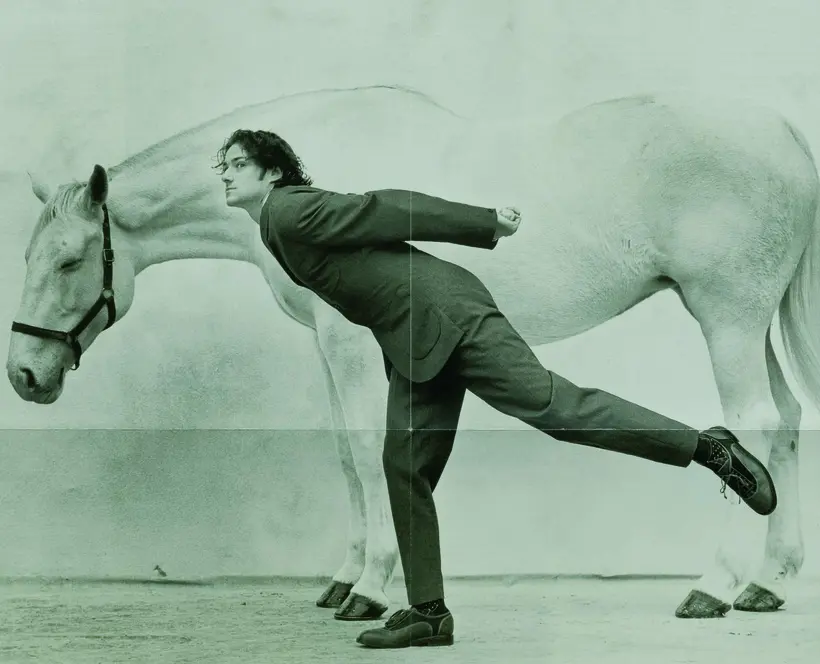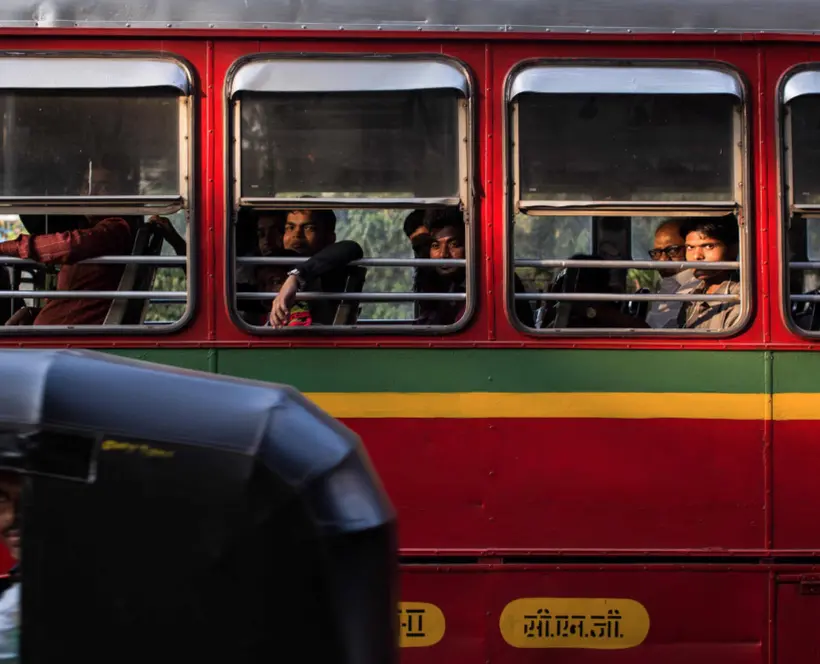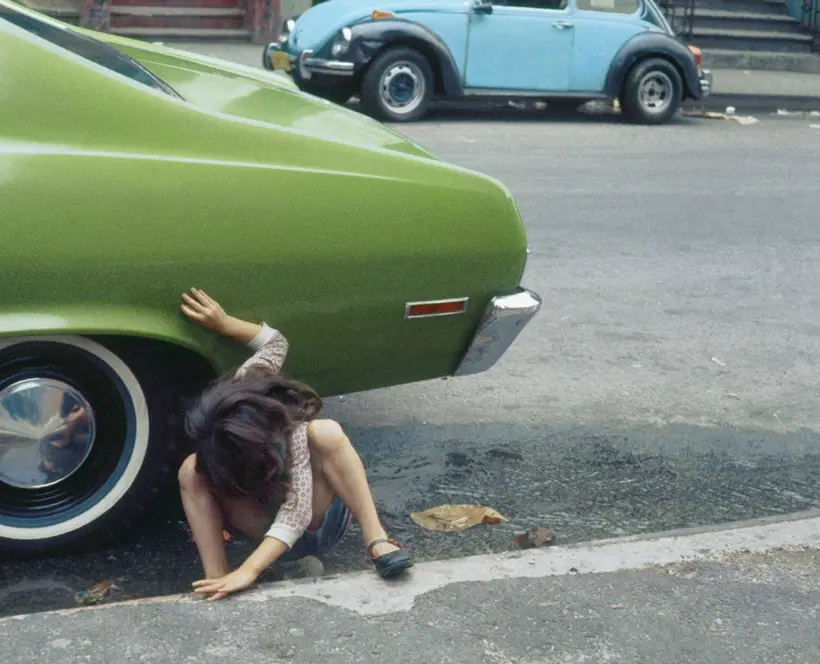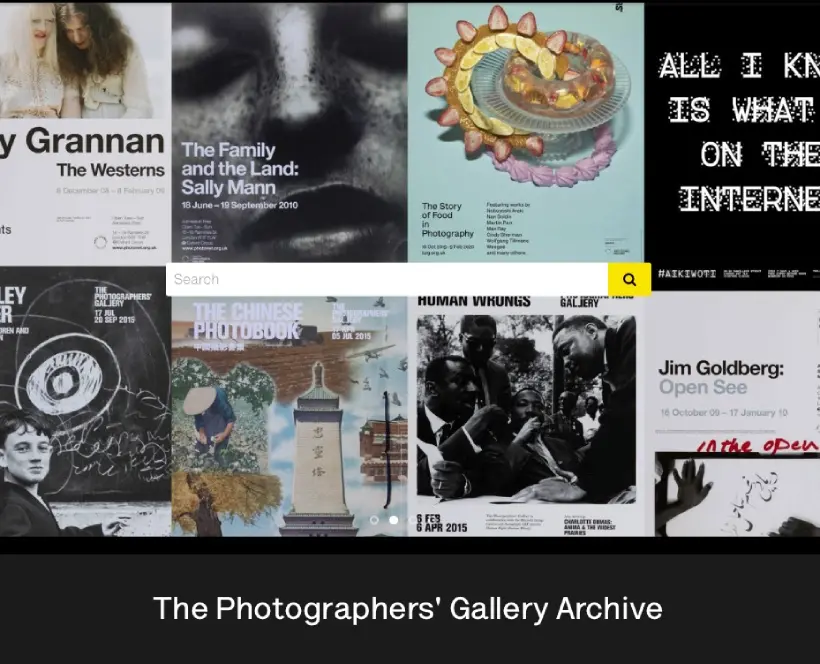This spare, elegant exhibition beckons us towards Levitt’s marvellous, off-kilter world
Alex Diggins - Telegraph
One of the most influential street photographers of the 20th Century, Helen Levitt spent decades documenting local communities in her native New York, capturing everyday city life in neighbourhoods such as the Lower East Side, Bronx, and Spanish Harlem. Working from the 1930s through the 1990s, Levitt produced an extensive body of work consisting of a variety of projects and mediums, from photographs to artist books and was an early proponent of avant-garde filmmaking. From her early photographs of chalk drawings, to portraits of New York subway passengers and vivid colour photography, this retrospective brings together key works from across her lifetime.
After briefly working with a commercial portrait photographer, Levitt began to devote herself fully to photography in 1936. Inspired by a meeting with the photographer Henri Cartier-Bresson, she began to unobtrusively document the residents of her local neighborhoods with a 35-mm Leica camera, rendering everyday scenes into a theatrical spectacle. Strongly influenced by surrealism and silent film, Levitt also explored the uncanny elements of the everyday, often capturing people in strange poses alongside surreal juxtapositions of people, places, and things. Although much of her work documented poor communities against a backdrop of depression or war, Levitt aimed to capture the poetics of everyday life rather than providing political or social commentary.
One of the early pioneers of colour street photography, Levitt was one of the first photographers to exhibit her colour work in 1974. In 1959 after receiving a Guggenheim grant to shoot the streets of New York City, Levitt visited many of the same locations she had captured in the beginnings of her career, recreating these scenes in richly coloured dye-transfer prints. This exhibition presents a broad selection of Levitt’s colour photographs, showcasing the development of a new pictorial language in her work.
Also showing as part of the exhibition is In the Street (1953), the experimental documentary Levitt made with filmmaker Janice Loeb and the writer James Agee which focused on street life in Spanish Harlem. The first of several film projects Levitt created, In the Street closely corresponds to her photographic work, providing a moving portrait of her still photography and is considered an essential forerunner of the cinéma vérité style emerging in the 1960s.
Whilst reportage of New York City remained at the heart of Levitt’s practice, this exhibition also displays photographs she made when visiting Mexico for several months in 1941. Her only body of work taken outside of New York, these images document the inhabitants of poorer neighbourhoods in Mexico City, a place on the cusp of enormous social and economic change.
A radical retrospective of Levitt’s work…traces her work in photography and film over 50 years of restless, inquisitive looking.
Sean O’ Hagan - The Observer
Taking place over two floors of the Gallery, this retrospective of more than 130 works will survey the full breadth of Levitt’s rich photographic practice, charting her journey from street reportage to documentary filmmaker and pioneer of colour photography.
Helen Levitt: In The Street is curated by Walter Moser in collaboration with TPG’s Senior Curator, Anna Dannemann and co-produced by The Albertina Museum, Vienna and The Photographers' Gallery.
The exhibition opens alongside Helen Cammock: Concrete Feathers and Porcelain Tacks, a new film and installation project from the Turner Prize nominated artist Helen Cammock.
